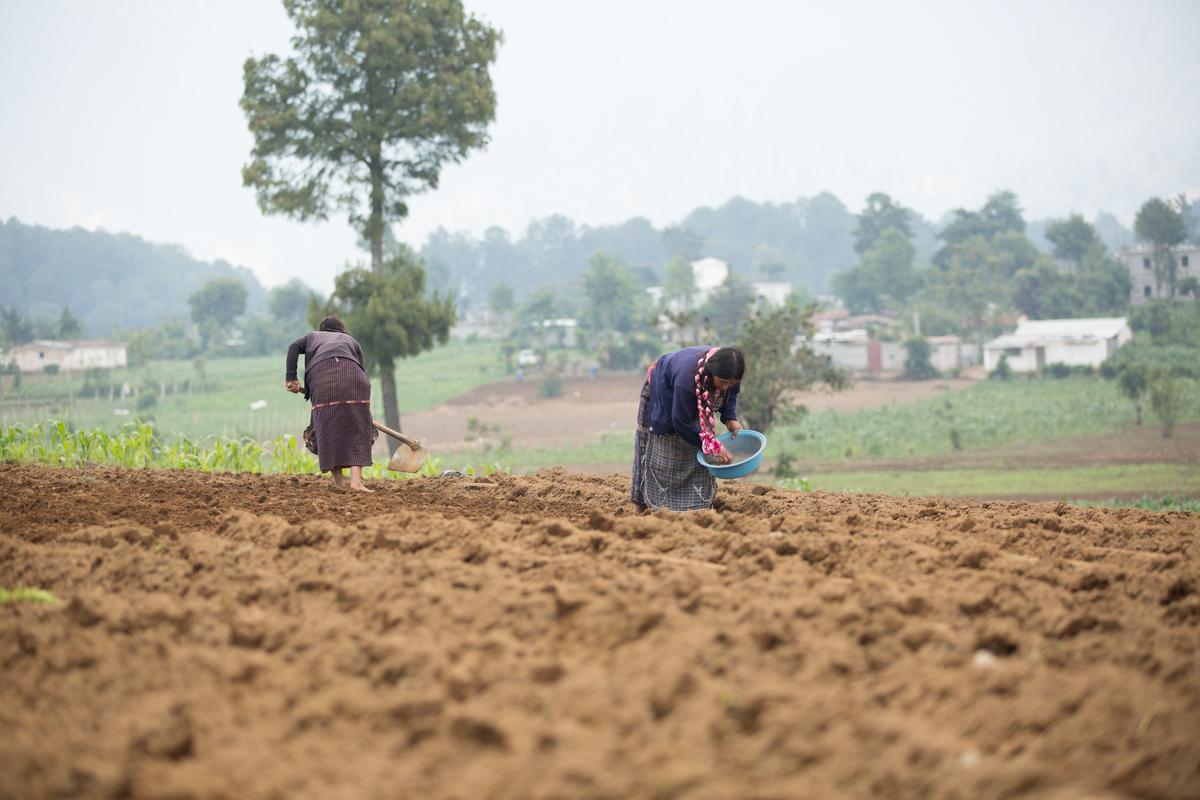Prioritizing Nutrition in the Climate Response

The World Health Organization (WHO) has declared climate change the single biggest threat to humanity, with its profound impacts disproportionately affecting the most vulnerable populations—pregnant women, infants, and young children.
As the world comes together to fight the climate crisis, the health and well-being of women and children must be at the center of our response. Each year, malnutrition is responsible for more than 3 million child deaths. Modeling suggests climate change-induced undernutrition will drive a further 10% decrease in years of healthy life by 2050. With that, nutrition must be a key consideration when discussing the impacts of climate change.
In the face of these devastating impacts, we cannot lose sight of the fact that climate change is also widening global inequities in maternal nutrition. According to the United Nations Population Fund (UNFPA) climate change has both direct and indirect impacts on maternal health, making pregnancy less safe and exacerbating negative birth outcomes for newborns.
- An increase of 1 degree Celsius in the week before delivery corresponds with a 6% greater likelihood of stillbirth.
- Rising temperatures are also reshaping disease patterns—notably mosquito-borne diseases like malaria and dengue fever—with adverse effects on maternal and child health.
- Climate-related emergencies cause major disruptions in access to health services such as antenatal and postnatal care visits and commodities.
Around the world, women and girls are already more food insecure than men. This is especially problematic as women have increased micronutrient requirements during pregnancy due to rapid growth and development. What’s more, 1 in 3 non-pregnant women and adolescent girls is anemic. As extreme weather events continue to alter the food supply and constrain access to nutrient-rich diets, even more women and girls will be at risk of malnutrition.
A sobering forecast by the World Food Program warns of a potential 20% surge in hunger and malnutrition by 2050 due to the adverse effects of climate change. Women, girls, and young children are particularly vulnerable amid this rise in hunger, and the potential impacts are devastating.
Malnutrition during the vital period between pregnancy and a child’s fifth birthday sets them up for lifelong and life-threatening impacts. Undernourished pregnant women face a higher risk of serious and even life-threatening complications during their pregnancy and childbirth. They are more likely to give birth to newborns that are born too soon or too small, and these newborns are more likely to suffer from physical and cognitive setbacks affecting their lives ahead for decades to come. Malnutrition contributes to an intergenerational cycle of poverty, poor health, and adverse well-being with ripple effects for families, communities, and even entire countries.
Against this backdrop, it is clear that urgent action is needed to create resilient health systems and communities that can tackle malnutrition within the climate crisis. Often, communities that are the most affected by climate change are the same communities that already face significant barriers to accessing quality health and nutrition services. Strengthening health systems to withstand the shocks of climate crises can help ensure underserved, nutritionally-vulnerable populations have access to evidence-based nutrition interventions. We—the nutrition and maternal health community—must stand at the forefront of the response and finding solutions.
Vitamin Angels is proud to join WHO, UNICEF, UNFPA and other partners in signing a call to action on the impacts of climate change on maternal, newborn, and child health. We encourage you to join in this effort. Learn more about this initiative from Partnership for Maternal, Newborn & Child Health.
